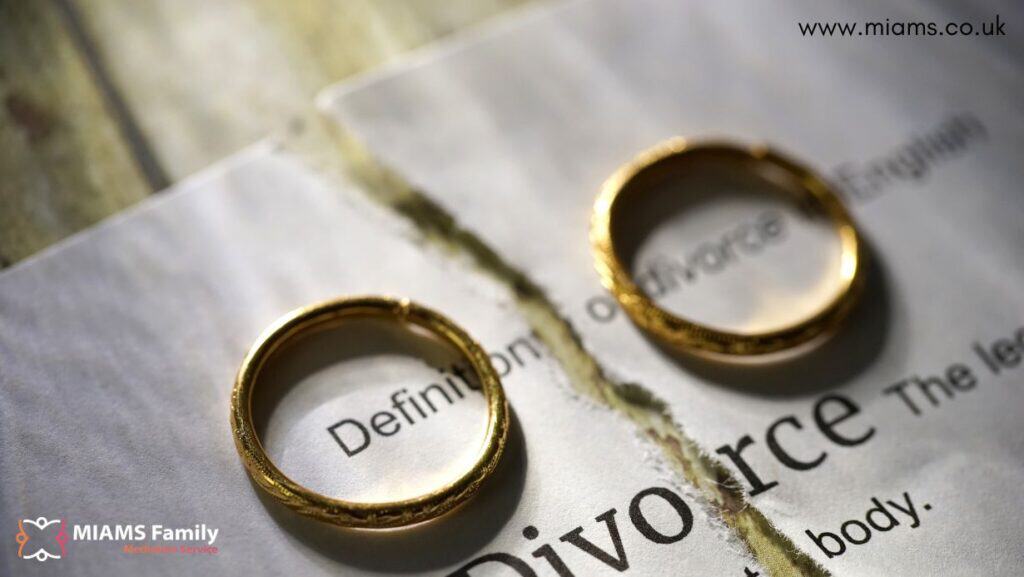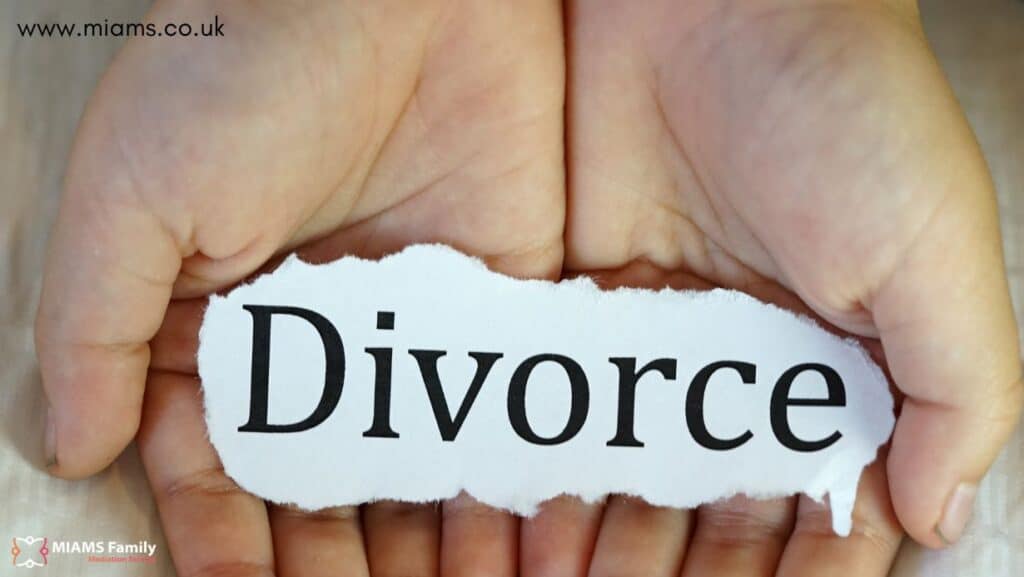How Can Mediation Help With Divorce

How Can Mediation Help With Divorce? Introduction
Going through a divorce is tough. It can bring a lot of emotions and hard choices. The legal process can make things worse, but divorce mediation can help. Divorce mediation is a type of family mediation. In this process, a neutral person called a mediator helps couples who are separating. The divorce mediator guides them through their problems and helps them find solutions that work for both. This article talks about the big benefits of mediation. It can lead to a divorce that is easier, less stressful, and more positive
How Can Mediation Help With Divorce? Key Highlights
- Divorce mediation offers a less adversarial and more amicable approach compared to traditional court proceedings.
- It empowers separating couples to maintain control over the decision-making process regarding finances, assets, and child arrangements.
- Mediation for families facilitates open communication, fostering a cooperative environment to achieve mutually agreeable solutions.
- This approach can significantly reduce the emotional stress and conflict often associated with divorce, particularly for children involved.
- Choosing mediation can lead to faster resolutions and potentially save on the legal costs associated with lengthy court battles.
How Can Mediation Help With Divorce?

Divorce mediation is becoming more popular in the UK as a great choice instead of going to court. This process is voluntary. A trained mediator steps in as a neutral person. They help couples make agreements on important issues that come up from their separation. These common issues include finances, assets, and child arrangements.
Unlike court cases, which can be very confrontational, mediation focuses on working together. The mediator helps the couple talk to each other better. They guide them to understand one another’s views and create solutions that meet their needs and worries.
How Can Mediation Help With Divorce – Start with your MIAM
Mediation can take place during different steps of the divorce process. It works best when started early. Before you begin , you often have a Mediation Information & Assessment Meeting (MIAM). This meeting is where each person can get more information. This includes understanding the process, the possible results, and if it fits their situation.
The mediator will create a calm area for you to talk and negotiate. However, they do not give legal advice. It is very important to get independent legal advice from a solicitor to make sure your rights are safe and that any agreements are fair and legally correct.
If both of you agree to go on after the MIAM, the mediator will set up some joint sessions. These sessions are kept confidential. They give you both a safe space to communicate openly and solve problems together.
Should I use a Mediator vs a Solicitor and Court ?
One of the main differences between mediation and court cases is how they handle disputes. Court cases can take a long time and are often complex and usually involve expensive solicior bills. In contrast, mediation focuses on open talks and finding common understanding. Here are some key differences:
- Control and Decision-Making: In court, a judge makes the decisions. This can leave one or both sides unhappy. In mediation, couples stay in control and can create agreements that suit their needs.
- Cost-Effectiveness: Legal costs for court cases may rise quickly. This adds stress to an already tough time. MIAMS [Name] usually costs less, reducing expenses like court fees and hiring a solicitor.
- Speed and Flexibility: Court cases can last several months or years, which can cause stress and worry. Mediation can be faster. It allows couples to set sessions around their schedules.
How Can Mediation Help With Divorce? Starting the Process
The mediator will help you with the first steps. This includes setting up the MIAM meeting. The MIAM focuses on sharing important information, discussing concerns, and deciding ifit works for both sides’ needs and goals.
How Can Mediation Help With Divorce? What to Expect in Your First Mediation Session
The first session is often seen as an introductory meeting. This meeting helps set the tone for clear communication and builds a base for helpful talks. The trained mediator usually starts by explaining the mediation process. They will clarify that they are a neutral person here to help. It’s also important for both parties to know the ground rules for respectful conversation.
In this first meeting, each person can share their views, needs, and worries in a clear and honest way. The mediator promotes listening carefully, which helps create a caring space between the partners who are separating.
Keep in mind that your MIAMS [Name] mediator aims to find common ground and create solutions that work for everyone. While you will have chances to share your needs, working together with a good attitude will help make the process smoother and more effective.
Financial issues often play a key role in divorce cases. They can lead to disagreements between couples. MIAMS [Name] offers a clear and helpful setting to work through these tricky topics together. It focuses on being open and understanding the couple’s finances.
During guided talks, the mediator helps to find out about assets, debts, income, and each person’s financial needs. This openness helps create a fair money agreement that looks out for both people’s future well-being.

How Can Mediation Help With Divorce Settlements?
MIAMS [Name] helps with divorce settlements by providing a structured, neutral environment where both parties can communicate openly with the assistance of a trained mediator. It promotes cooperation, reduces conflict, and allows couples to reach fair agreements on important issues like asset division, child custody, and support. Using MIAMS [Name] is often faster, less expensive, and less stressful than going to court.
What financial issues can be discussed in mediation?
MIAMS [Name] can help you can address various financial issues, including property division, debt allocation, child support, spousal support and future financial responsibilities. It allows couples to negotiate fair solutions that work for both parties rather than having a court impose a decision.
How is property and asset division handled in mediation?
Both parties disclose their assets and debts, and the mediator helps them negotiate a fair division. Factors such as the length of the marriage, contributions of each spouse, and future financial needs are considered. The goal is to reach a mutually agreeable division that aligns with legal standards and the couple’s unique circumstances.
Can Mediation help with spousal support or child support agreements?
Yes, MIAMS [Name] can help determine fair spousal support arrangements by considering factors like income disparity, length of the marriage, each spouse’s financial needs, and earning potential. MIAMS [Name] sessions allows for flexible, personalised agreements that work better for both parties compared to court-imposed decisions.
What if one party tries to hide assets during mediation?
If one party is suspected of hiding assets, MIAMS [Name] can incorporate financial disclosures and, if necessary, involve forensic accountants or legal professionals to ensure transparency. While participation relies on honesty, legal remedies are available if dishonesty is discovered, and the court can impose penalties for fraudulent behavior.
How Can Mediation Help With Divorce? Handling Debt and Assets in Mediation
Dividing assets and debts fairly constitutes a crucial aspect of divorce mediation. This process necessitates complete transparency regarding all financial information. The mediator assists in creating an inventory of assets and debts, ensuring both parties clearly comprehend the overall financial picture:
When addressing debt division, consider factors such as who incurred the debt and for what purpose. For shared debts, explore options like refinancing or selling assets to settle these obligations.
The mediator helps facilitate these discussions, promoting a collaborative approach to finding equitable solutions that minimize future financial burdens for both parties.
Child Access Agreements in Mediation
When kids are involved, it’s very important to make agreements about child custody and support. MIAMS [Name] focuses on what is best for the children. It aims to create a parenting plan that supports their well-being during family changes.
The mediator helps with open discussions about where the kids will live, when they’ll visit each parent, their education, healthcare, and other important parts of their lives. The goal is to create an agreement that centers on the child. This agreement should provide stability, regular care, and loving relationships with both parents.
Creating a Parenting Plan
A good parenting plan is very important to keep a child’s life stable during a divorce. MIAMS [Name] helps families create a plan that focuses on what is best for the child.
Think about things like the child’s age, school routine, after-school activities, and how close each parent’s home is. The mediator can guide you through different types of custody options. This includes sole custody, joint custody, and also setting up times for visitation so the child can spend quality time with both parents.
Reducing Conflict
It’s important to stay flexible. A parenting plan should change as the child grows and their needs change. The mediator can provide advice on how to review and update the plan when life circumstances shift.
One big benefit of working with MIAMS [Name], especially in divorce cases, is that it helps cut down on conflict and lowers stress for everyone. Unlike court battles, which can be very confrontational, mediation promotes teamwork and understanding.
This focus on reducing conflict brings important emotional benefits for families during separation. It encourages better communication, lowers stress, and creates a calmer base for the future.
Fostering Communication Between Separating Partners
Effective communication can fail during a divorce. This often leads to misunderstandings, more conflict, and long legal fights.
The mediator helps couples have meaningful discussions. They show partners how to share their needs and worries kindly. They also teach them to listen well to each other. This helps to close the communication gap that often grows during a separation.
Better communication continues beyond your sessions. It gives separating partners skills for future talks, especially when it comes to co-parenting. This way, they can interact in a healthier and more productive way.

Overcoming Challenges in Mediation
MIAMS [Name] can help people find friendly solutions. However, there can be problems when dealing with personal or emotional topics. Issues like power differences, bad communication in the past, or not wanting to give in can make things hard.
A good mediator knows how to handle these problems. They use methods to create a level playing field. They help people talk to each other respectfully and listen well. If participants share their concerns or challenges with the mediator, they can change their approach to make the process work better.
When One Party is Reluctant to Mediate
One party might be hesitant to join the process. This could be due to fear of giving up something important, past bad experiences with sorting out conflicts, or wanting to stay in control of the results.
It’s essential to connect with this person in a kind and understanding way. You should encourage them to speak openly about their worries without fear of being judged.. Stress that it aims to find solutions both sides can agree on, not just to force decisions.
Dealing With Complex Emotions During Sessions
Divorce can bring up many strong feelings. You might feel grief, anger, sadness, and fear. If these feelings are not dealt with, they can come out during sessions. This can make progress hard and increase conflicts.
A good mediator understands these feelings. They create a safe space for these emotions to be expressed. The mediator uses techniques to calm tensions and encourage respectful communication. They also guide people to focus on the goals of the communication to find solutions.
How Can Mediation Help With Divorce? FAQ
Is Mediation Legally Binding in the UK? – The process itself is not legally binding. However, the agreements made can become legally enforceable. This is done when the terms we agree on are written into a consent order. Then, this consent order is sent to the court for approval.
How Long Does the Mediation Process Typically Take? – The length of the process can change based on how complex the issues are and how ready the couple is to work together. Many couples find solutions in just a few sessions. This is often quicker than going through traditional court proceedings.
Can Mediation Deal With All Aspects of a Divorce? – Divorce mediation as a dispute resolution option can help with many issues. This includes child arrangements, settling finances, and dividing assets and debts. It is a complete way to deal with matters related to divorce.
Can I Get Financial Support for Divorce Mediation? – In England and Wales, financial support for the cost of mediation may be available through legal aid, depending on your financial situation or if you are on a low income.. The Family Mediation Voucher Scheme is also an option if you need to discuss child arrangements. During mediation, couples work toward a fair settlement, which is often documented in a Memorandum of Understanding—a summary of the agreed terms.
While this document itself is not a legally binding agreement, it can be converted into a consent order by the court. Financial matters discussed can include spousal support, property division, and child maintenance. to discuss How can mediation help with divorce Speak to MIAMS [Name] today, speak to our family mediators on 03300 101 354 or arrange a callback here.
